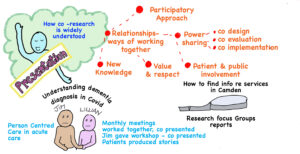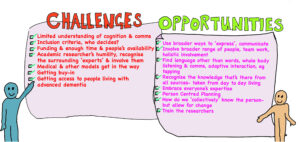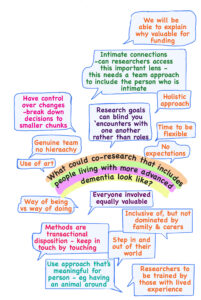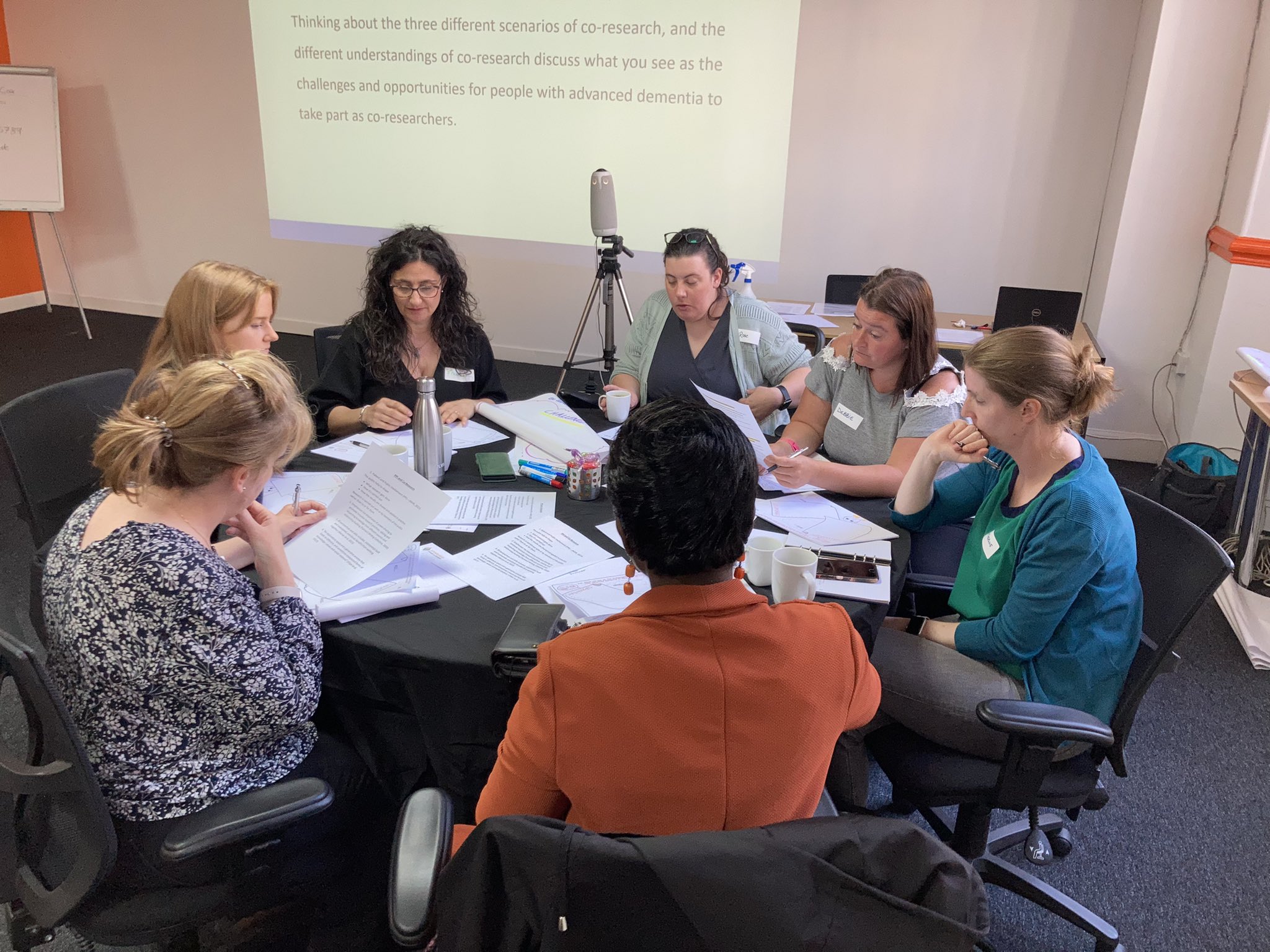On Wednesday 30th August we held our 3rd INCLUDED workshop “What Could Co-research Look Like When Working with People with a More Advanced Dementia?”
This workshop held at the Edinburgh Training and Conference Centre, where we were very well looked after, brought together our learning from workshops 1 and 2. It allowed the space to think about a broader vision of what co-research could look like for people with a more advanced dementia.

I gave a recap of the purpose of the project which you can read about here, followed by an overview of the first two workshops.
Our first workshop explored the ethical dilemmas and challenges involved in doing any form of collaborative research with people living with dementia, and this is captured in the following blog here.
Our second workshop explored how we might find other ways to carry out research with people living with more advanced dementia as co-researchers through creative and artistic methods. We were delighted to be joined by two artistic practitioners, Suzy Ferguson, a therapeutic clown, and Dr Jane Bentley, a musician who have a wealth of experience in creatively finding ways to see and hear what is meaningful for people with a more advanced dementia.
The two blogs linked below describe these workshops and our learning from them.
It was great to welcome back many of those who had taken part in the first two workshops, and to see some new faces too. We were also delighted to be joined by Jackie Forbes, from Draw to Learn, who captured our discussions visually throughout the day. Jackie’s visuals are used throughout this blog.
We started the day with tea, coffee, and biscuits and after our initial introductions, we thought about who we would most like to be stuck in a lift with just for some fun! Whilst some of us wanted to be stuck in a lift with our pets, actors, musicians and comedians, the most popular choice by far was a lift engineer!
I then gave a presentation on the current understandings of co-research, with examples of co-research with people living with dementia from the following papers:
- Mann, J., Hung, L., (2018) Co-research with people living with dementia for change. Action Research, Vol 17 (4), pp.573-590
- Munro, D., Kinnaird, L., Russ, T., Gambier-Ross, K., Wilkinson, H., Vincent, R., (2021) Sharing the diagnosis of dementia in the post-COVID-19 clinic: patient and practitioner perspectives: dementia assessment and diagnosis during lockdown. Alzheimer’s Disease International World Alzheimer Report 2021, pp182-185
The presentation also referred to some research where people living with dementia carried out an enquiry about how easy it is to find print-based information services in Camden for older people age 70+ living with dementia in the borough (Great Camden Minds, 2022). You can read about this research here.

Following this presentation we broke into groups to discuss the challenges and opportunities and opportunities that those current understanding present for people living with a more advanced dementia to be co-researchers.

Some of these challenges and opportunities were captured by Jackie Forbes in this visual, and as always, the issue of the time needed to build relationships so that we can begin to understand what is meaningful for people living with an advanced dementia was also raised.
The final question of the we explored was:
“What could co-research that includes people living with a more advanced dementia look like?”
Delegates were invited to use their imagination as the envisioned the future of research in this way.
Once again Jackie captured these ideas in her visual below:

As I reflect back on this 3rd workshop it is clear that there is a real desire to find ways to include people living with a more advanced dementia as co-researcher. However, in order for this to happen, we need to have the time, supportive structures and the courage to step outside of our traditional methods of doing research and enter into the “don’t know spaces” without goals and expectations, being creative and trusting that we can find a way to understand what is meaningful for people with a more advanced dementia.
Our final workshop will take place during October, and details will be shared as soon as dates have been finalised.


